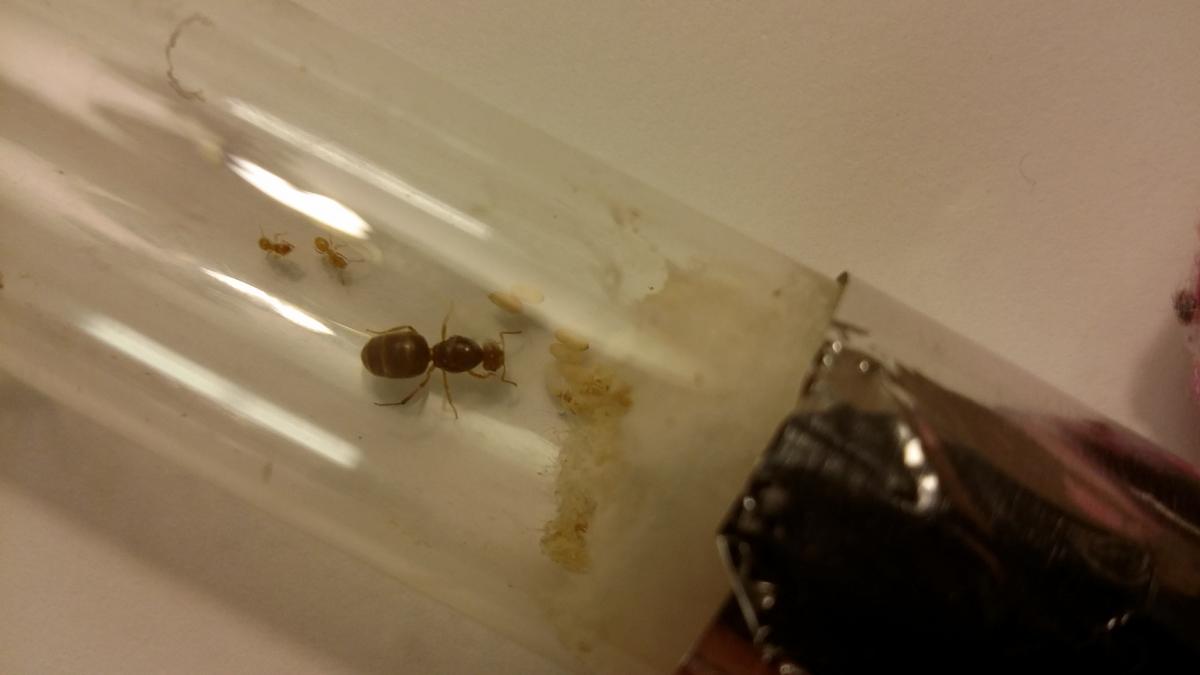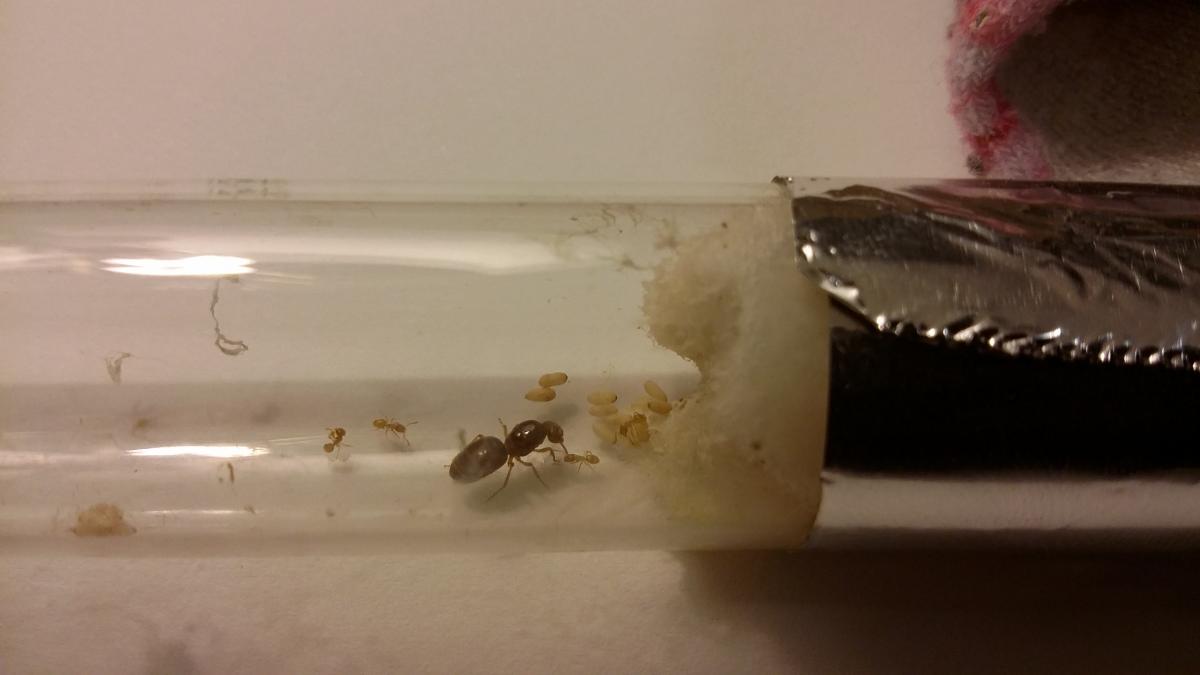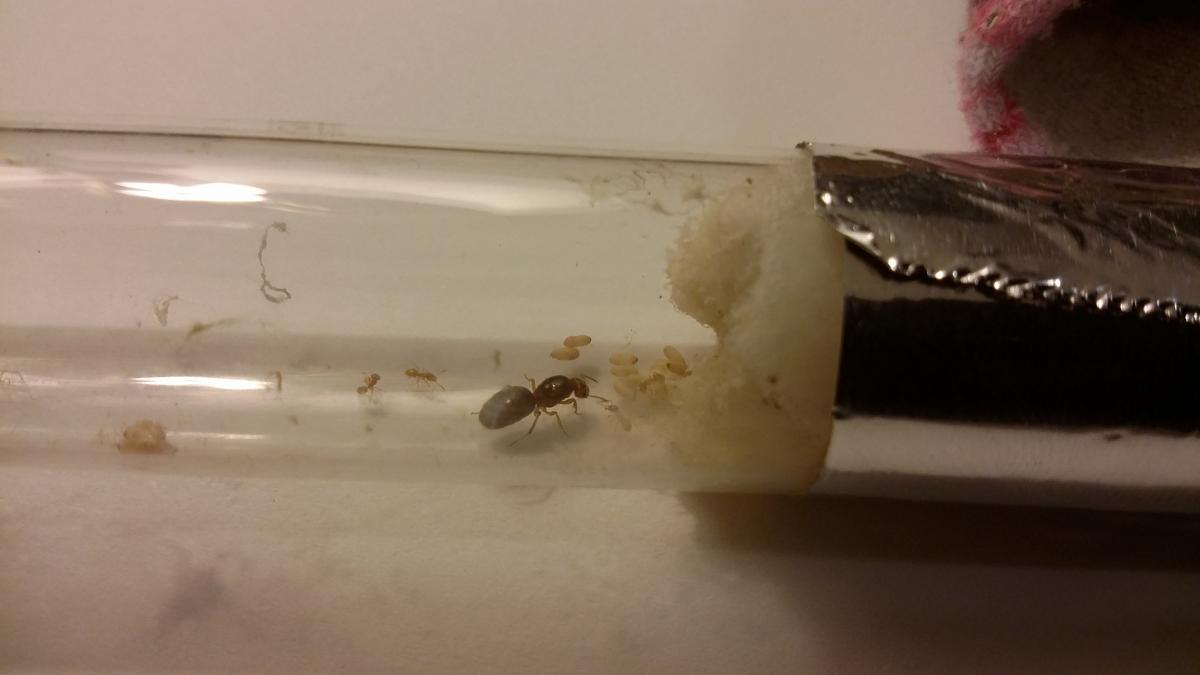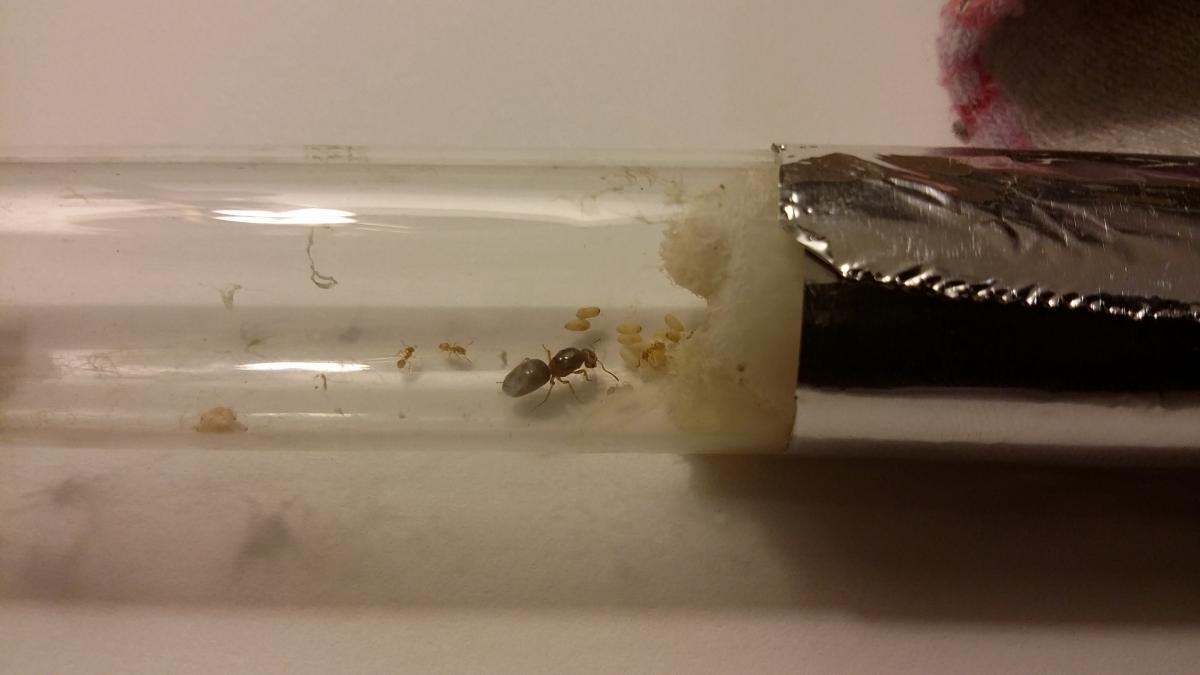- Formiculture.com
- Forums
- Gallery
- Members
- Member Map
- Chat

Lasius orangyellowcus?
Started By
Works4TheGood
, Jun 14 2016 4:21 PM

Best Answer Works4TheGood , June 14 2016 - 5:23 PM
I'm doing some research on Lasius nearcticus and it actually does have bright orange workers, which means ... I have no idea what my other queen is because I thought that that too was the same species, but that one has black workers. Still, I'm not sure what to feed these guys. I think I'm in trouble.
Go to the full post 
4 replies to this topic
#1
 Offline
-
Posted June 14 2016 - 4:21 PM
Offline
-
Posted June 14 2016 - 4:21 PM
I caught these in the fall of last year here in State College, Pa. I was pretty certain that these were Lasius nearcticus up until I discovered the orange-yellow workers. Now I don't know what to think. I hope they're not subterranean because I have no clue how to care for them. I can provide more pics upon request.
~Dan
#2
 Offline
-
Posted June 14 2016 - 5:16 PM
Offline
-
Posted June 14 2016 - 5:16 PM
I would guess Lasius Flavus but when I say guess I mean it. It looks just like workers I had IDed for me.
Prenolepis Imparis
Tetramorium Sp. E
Crematogaster
Brachymyrmex Sp.
Lasius Claviger
#3
 Offline
-
Posted June 14 2016 - 5:23 PM
Best Answer
Offline
-
Posted June 14 2016 - 5:23 PM
Best Answer
I'm doing some research on Lasius nearcticus and it actually does have bright orange workers, which means ... I have no idea what my other queen is because I thought that that too was the same species, but that one has black workers. Still, I'm not sure what to feed these guys. I think I'm in trouble.
~Dan
#4
 Offline
-
Posted June 14 2016 - 5:57 PM
Offline
-
Posted June 14 2016 - 5:57 PM
They should accept insects and sugar water just like any other Lasius. Look up other people's journals on these species to see if you can surmise any additional care tips.
Lasius neoniger flies around the same time as Lasius flavus/nearcticus and the queens tend to look very similar in coloration.
When you eventually have a dead worker to examine, you can use this key to distinguish L. nearcticus from L. flavus:
http://www.utep.edu/...ants/lasius.doc
Edited by Batspiderfish, June 14 2016 - 6:01 PM.
If you've enjoyed using my expertise and identifications, please do not create undue ecological risk by releasing your ants. The environment which we keep our pet insects is alien and oftentimes unsanitary, so ensure that wild populations stay safe by giving your ants the best care you can manage for the rest of their lives, as we must do with any other pet.
Exotic ants are for those who think that vibrant diversity is something you need to pay money to see. It is illegal to transport live ants across state lines.
----
Black lives still matter.
#5
 Offline
-
Posted June 14 2016 - 6:36 PM
Offline
-
Posted June 14 2016 - 6:36 PM
That's good advice! I'll take it! Thanks! And thanks for ery much for the link!
~Dan
1 user(s) are reading this topic
0 members, 1 guests, 0 anonymous users




















